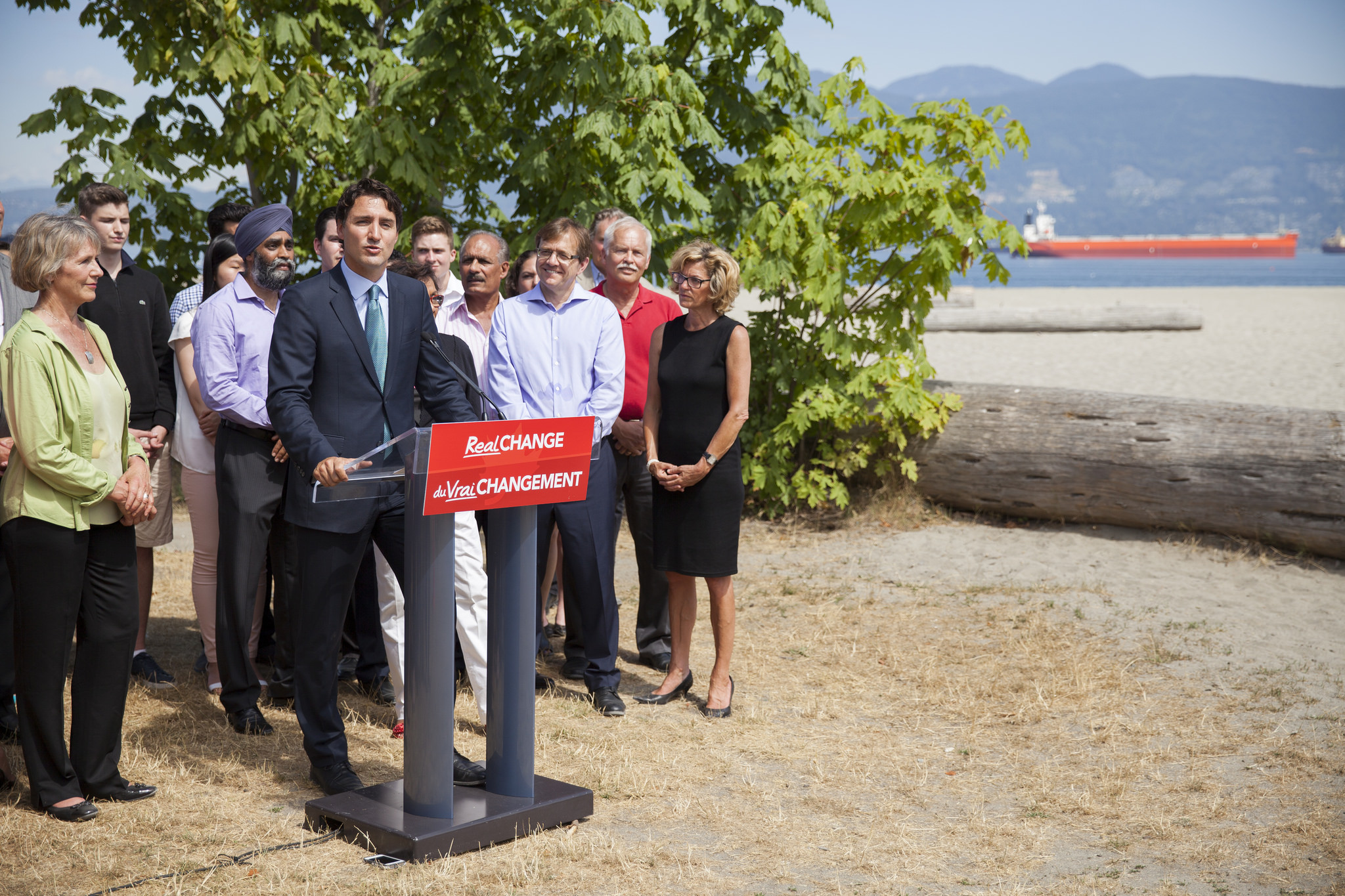Like this article? rabble is reader-supported journalism. Chip in to keep stories like these coming.
We live in a world where words are big. They hold inside them promises, ideals and expectations. The big climate words of the year came from Canadian Prime Minister Justin Trudeau proclaiming Canada “is back” on climate change.
Last Thursday however, was a grim day for our climate. After nearly three years of review and deliberation, Canada’s National Energy Board (NEB) conditionally approved the expansion of Kinder Morgan’s Trans Mountain pipeline. The twin pipelines would transport nearly 900,000 barrels of crude oil 1,150 kilometres from Edmonton, Alberta to Burnaby, British Columbia every day.
The approval of the twin pipelines would increase oil tanker traffic seven-fold, from 60 to over 400 tankers in the Port of Vancouver every year. Coastal communities and Indigenous nations have demonstrated their protest against the decision.
The NEB’s approval of this pipeline expansion comes with 157 conditions, nearly 50 of which are environmental. The federal government is adding two additional reviews to the NEB process.
This includes a climate test, which will calculate the greenhouse gas emissions associated with the pipelines’ construction, but not the associated emissions of the crude oil that it will transport. Additionally, there will be a three-member panel review, which will include consultations to assess the potential impact of the pipeline on Indigenous peoples and affected communities.
Canada’s Minister of Natural Resources, James Carr, has announced this panel will be composed of Alberta’s former deputy finance minister Annette Trimbee, former Yukon premier Tony Penikett and former chief of the Tsawwassen First Nation in British Columbia, Kim Baird.
Many however, have become disillusioned with the overall review process of the NEB. During Harper’s Conservative administration, this federal regulatory agency lost much of its credibility as professionals of the oil and gas industry began to take on roles as board members of the NEB.
During the federal election campaign, Trudeau promised to restore this flawed environmental assessment and overhaul the NEB review process. To date, this has yet to be done, and projects such as the Trans Mountain pipeline are slipping through the old cracks of this faulty process.
The NEB’s chief environment officer Robert Steedman has stated that while the NEB found the likelihood of a major spill to be very low, the consequences associated would be very high.
These words need not be spelled out to the residents of coastal British Columbia who suffered a Trans Mountain Pipeline oil spill in 2007, which released more than 250,000 litres of crude oil from a pierced pipeline. Just last year, nearly 3,000 litres of toxic bunker fuel spilled into Vancouver’s English Bay.
Within the next seven months, the federal government must come to a decision regarding this controversial pipeline expansion proposal.
Trudeau’s election campaign uttered promises of fossil fuel subsidy phase-outs, renewable energy investments and overhauled environmental assessments. Many of these seem like distant and forgotten cries as the fossil fuel industry slips its way into the large loopholes of an unreformed environmental review.
With a revamped climate strategy still on hold, the Liberals are riding upon the former Conservative government’s commitment of a 30 per cent emissions reduction by 2030 compared to 2005 levels. However the current government strays far from achieving even this target.
If Canada is so called “back” on climate change, it is clear that the Trans Mountain Pipeline must be left behind as a relic of the sunset fossil fuel industry. Trudeau’s words will now be put to the test.
Like this article? rabble is reader-supported journalism. Chip in to keep stories like these coming.
Image: Flickr/Mychaylo Prystupa



